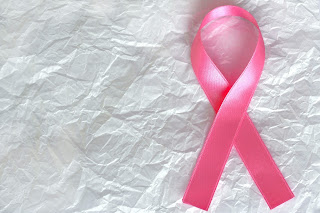Can early detection of the symptoms of psychosis be helpful?
Psychosis is one of the various guises that mental disease can take. It can cause hallucinations (hearing voices, seeing visions, or sensing unreal sensations) or delusions in those who experience it (firmly fixed beliefs that are not based on reality). And frequently, a person's first psychotic encounter happens when they are a teenager or a young adult.
Could recognising the early indicators of psychosis and offering the right support alter the course of the illness? Experts concur that it might.
What should you be aware of about psychotic disorders?
Three out of every 100 persons experience psychosis at some point in their lives. A psychotic disorder, such as schizophrenia, schizoaffective disorder, or bipolar disorder with psychotic characteristics, is only diagnosed in one in every 100 people.
People with psychosis may also experience hallucinations or delusions, as well as exhibit disordered speech or behaviour. Their behaviour can be unsettling, particularly if you're a concerned parent, relative, or friend of someone going through psychosis.
Mental health professionals once thought there was little chance of rehabilitation from a psychotic disorder. Fortunately, psychosis research has shown us that this is untrue. The three to five years following the initial episode of psychosis are critical for rehabilitation since outcomes vary greatly.
Why is it crucial to recognise psychosis at an early stage?
According to research, a person with untreated psychosis is more likely to have a high burden of symptoms, impaired functioning, and a poor quality of life the longer they go without treatment. It's advisable to talk to a doctor as soon as possible if you have any concerns.
Antipsychotic drugs like risperidone or aripiprazole usually work effectively on teens or young adults who are having their first hallucinations, delusions, or other signs of a psychotic episode. There are other programmes available to help young individuals who are at risk for psychosis or are going through their first episode.
What are the early warning signs?
Teenagers and young adults frequently suffer distressing changes in thoughts and feelings prior to having obvious signs of psychosis. They could believe something strange is happening to them, are uncertain whether anything is real or imagined, feel watched or singled out, or are unable to fully control their thoughts.
ask for assistance in attempting to make sense of uncomfortable events like these by reporting changes in perception, such as their eyes or ears acting strangely, hearing jumbled, unclear speech, or seeing shadows or figures in the corners of their eyes.
What benefits might psychosis-risk programmes offer?
These programmes assist teenagers and young adults who struggle with a variety of mood and anxiety disorders as well as moderate psychotic symptoms but have not yet received a psychosis diagnosis. When it's possible, they concentrate on methods of reducing distress and averting the onset of psychosis.
Data from all of these programmes' participants suggests ;
*A third will see improvement in their symptoms.
*In one third of cases, a psychotic disorder such as schizophrenia, bipolar disorder with psychosis, or schizoaffective disorder will be identified.
*A third will experience a nonpsychotic mental illness, such as anxiety, personality disorder, or depression.
Care is provided by a multidisciplinary team that consists of psychologists, social workers, and psychiatrists. Targeting co-occurring conditions like depression and anxiety with medication is common.
Teaching coping mechanisms, challenging unhelpful beliefs with cognitive behavioural therapy, and controlling strong emotions with dialectical behavioural therapy are the main goals of individual therapy. Relationships are improved through family therapy and parent coaching. Research has found that people with families who display strong negative emotions likely to have greater symptoms, thus this is crucial information.
Clinicians also encourage patients to maintain sobriety, especially those who use cannabis because heavy cannabis users have a five-fold higher chance of developing psychosis.
What treatment options are available for a first psychotic episode?
Numerous early intervention programmes with a focus on psychosis are available in the US and other countries. 2,176 young patients with first-episode psychosis were treated at these facilities vs receiving standard care over a two-year period in an analysis of 10 randomised controlled studies. In comparison to those who got standard care, individuals who had access to an early intervention programme showed greater treatment adherence, fewer hospitalizations, and greater involvement in school or job.
A multidisciplinary team of mental health experts with knowledge of psychosis, including psychiatrists, psychologists, and social workers, is part of early intervention programmes. Instead than referring patients to other doctors, teams manage internal care coordination. Peer mentors who have been diagnosed with mental illness and are in recovery are commonly present. Peers provide patients with assistance by discussing their own recovery journeys and life experiences. By assisting patients as they resume their educational or employment pursuits or begin volunteer activities, vocational and occupational coaches help patients function better in society.
The conclusion
Similar to other illnesses, psychotic disorders can have a variety of outcomes, although people generally respond better to prompt, effective treatment. Psychotherapy, pharmacological treatment, and a range of supports are all provided by programmes for those at risk for psychosis.
Programs for early psychosis intervention are created to fulfil the needs of individuals who have just received a psychotic disease diagnosis. These initiatives provide highly specialised treatment and family assistance. Early sickness detection and putting young people in touch with skilled treatment can make a big difference.





Comments
Post a Comment